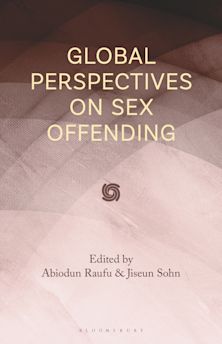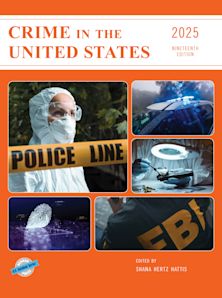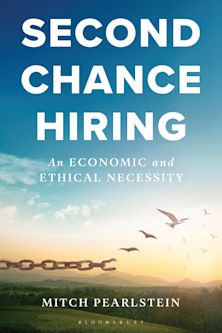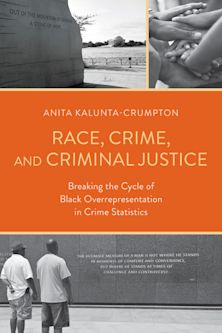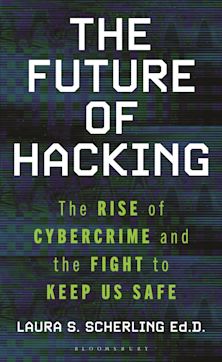- Home
- ACADEMIC
- Criminology
- Criminology - Other
- Theft of a Nation
This product is usually dispatched within 2-4 weeks
- Delivery and returns info
-
Flat rate of $10.00 for shipping anywhere in Australia
You must sign in to add this item to your wishlist. Please sign in or create an account
Description
Theft of a Nation presents a powerful criminological examination of Wall Street’s recent financial meltdown and its profound impact on the rest of the country. This provocative book asks why, if the actions of key players on Wall Street and in the government resulted in an economic downturn that harmed millions of Americans and destroyed capital worldwide, no one was held criminally liable for these actions.
Author Gregg Barak provides a basic history of financial regulation and deregulation, as well as a primer on both securities fraud and mass victimization. Using key concepts in victimology and white collar crime, he explores the diverse ways civil and criminal law enforcement responded to the damaging behavior on Wall Street. The book also assesses Wall Street Financial Reform and the Consumer Protection Act of 2010, showing the ways that Americans may still be at risk.
Theft of a Nation is the first comprehensive criminological investigation of the role of Wall Street and the government in the recent financial crisis, asking critical questions about who has been victimized and why.
Table of Contents
Chapter 1. Law, Power, and Wealth: On the Rhetoric and Reality of Fighting Financial Abuse
Chapter 2. Bernie Madoff’s Ponzi Scheme and Wall Street’s Financial Meltdown: A Primer on Investment Fraud and Victimization
Chapter 3. Unenlightened Self Interest, Unregulated Financial Markets, and Unfettered Victimization: From the Savings and Loan Bailouts to Too Big to Fail
Chapter 4. Theories of White Collar Illegalities and the Crimes of the Powerful: A Reciprocal Approach to the Political Economy of Wall Street Looting and Federal Regulatory Colluding
Chapter 5. Financial Looting, Victimization, and Legal Intervention: On Criminal Prosecution and Civil Law Enforcement
Chapter 6. Consuming Victims and Victimless Identities: On the Social Construction of Victimization and the Re-emergence of Public Victims
Chapter 7. The Wall Street Financial Reform and Consumer Protection Act of 2010: A Synopsis of Dodd-Frank and the Re-regulation of Financial Abuse
Conclusion
Product details
| Published | 02 Aug 2012 |
|---|---|
| Format | Hardback |
| Edition | 1st |
| Extent | 226 |
| ISBN | 9781442207783 |
| Imprint | Rowman & Littlefield |
| Dimensions | 232 x 162 mm |
| Series | Issues in Crime and Justice |
| Publisher | Bloomsbury Publishing |
About the contributors
Reviews
-
While many factors contributed to the recent financial crisis and subsequent great recession (e.g., repeal of the Glass-Steagall Act, increasingly complex derivatives), Barak (criminal justice, Eastern Michigan Univ.) lays the blame squarely on Wall Street leaders. He asserts their unethical and illegal behavior was aided by the incompetence of regulators and the lack of criminal prosecution of any fraud committed by the largest banks and their managers. Not one senior executive from a major financial institution has yet to be criminally prosecuted, and civil cases were settled without participants admitting guilt. According to Barak, these "finance capitalists who have great wealth, prestige, and access to politicos at the highest level of government were afforded ample opportunities to make, break, and neutralize, if not capture, the laws of regulation." For example, the Troubled Asset Relief Program funneled millions for bonuses to individuals responsible for the crisis and the loss of trillions of dollars by homeowners, municipalities, and pension plans. Barak suggests that recent regulations (e.g., the Dodd-Frank Act) will not improve the financial environment without enforcement. A glossary, extensive footnotes, and an index add to the book's usefulness. Summing Up: Recommended.
Choice Reviews
-
Theft of a Nation is about finance capital and institutionalized crime. Barak (criminal justice and criminology, Eastern Michigan University) traces the roots of the 2008 economic crisis to the 1980s, highlighting rising trade deficits, deregulation of the financial sector, and intensifying capital inequality, in the context of Reaganomics and neo-liberalism. He aims to explain how the federal government dismissed Wall Street's crimes and rebuffed its victims. There are seven chapters: law, power, and wealth; Bernie Madoff's Ponzi scheme, and Wall Street's financial meltdown; unenlightened self-interest, unregulated financial markets, and unfettered victimization; theories of white-collar illegalities and the crimes of the powerful; financial looting, victimization, and legal intervention; consuming victims and victimless identities; the Wall Street Financial Reform and Consumer Protection Act of 2010. He points to five reasons why law enforcement is not pursuing Wall Street fraud, and discusses how 2011 saw the lowest number of securities fraud prosecutions in the previous 20 years. He concludes his book with his depiction of a fantasy bailout for the American people. This fascinating and very readable book is for scholars and students as well as those who seek to understand the debacle of 2008.
Book News, Inc.
-
Barak’s analysis is not restricted to a particular moment or period, nor is its scope limited to a single set of circumstances and dynamics. Rather, Barak offers a history of banking in the U.S., along with its related histories of major financial frauds and lootings.
Critical Criminology
-
Finally! In Theft of a Nation, Gregg Barak reviews the actions that led to the so-called mortgage crisis on Wall Street in terms of their underlying criminality, not only of the individual economic players but also of the Wall Street system itself. This is a book that applies traditional (and Barak's new) criminological models so we can understand the underlying causes of systemic conduct that would, in any other context, be viewed as simple and blatant criminal conspiracies. I recommend it to all of us who are still trying to understand how our nation not only tolerated but also eventually rewarded the actors and the system—the thieves—that stole our nation's economic security.
Hon. Donald Shelton, Chief Judge, Washtenaw Trial Court, Ann Arbor, Michigan
-
Theft of a Nation offers a rich history of regulation in the U.S.: the forces that promoted it; the forces that sought (and still seek) to undo it; the consequences of deregulation. Timely and insightful, Theft of a Nation will generate research for years to come.
Gray Cavender, Arizona State University, School of Social Transformation
-
This is an intelligent and disturbing analysis of how Wall Street interests and governmental policies have, time and again, colluded in the fleecing of America. It is nothing short of a tour de force in the areas of white-collar crime and victimology.
A. Javier Treviño, Wheaton College













